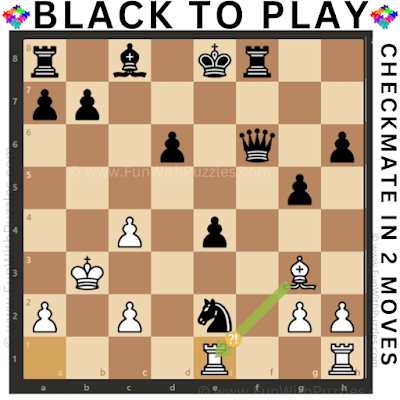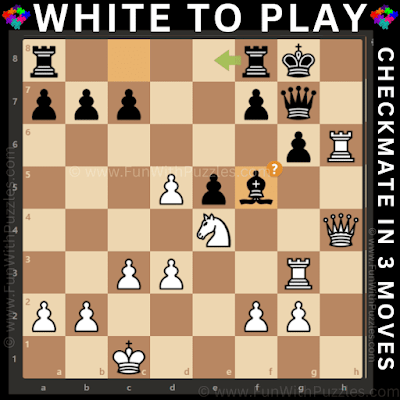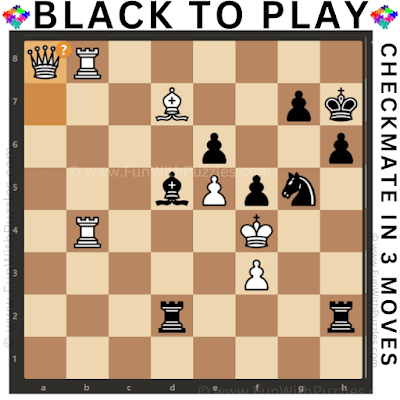Chess is the game of precision and you cannot afford to make even a single mistake. You may be in the winning position but if you make a silly mistake in the game you chess, you could lose immediately.
Today's chess puzzle challenges are taken from real chess games and are taken from the games where one made a mistake that led to the immediate checkmate in the next few moves.
Traditional Chess Puzzles: Checkmating Opponents in 1 to 3 Moves
In these chess riddles, your challenge is to checkmate your opponent in 1, 2, or 3 moves. It is mentioned in the chess puzzle image that you need to checkmate your opponent in 1, 2, or 3 moves.
A Unique Challenge: Finding Mistakes in Your Opponent's Moves
In these chess puzzles, there is a dual challenge. The next and most important challenge is to find the mistake made by your opponent. You need to think of the best previous move by your opponent that will avoid this immediate checkmate.
Solving the Puzzles: Playing as White or Black
7 chess challenges in this article will test your chess IQ. You either need to play as White or Black in these puzzles. It is mentioned at the top of the chess puzzle image whether you need to play as White or Black. Can you find the winning move in these chess riddles?
 |
| 2. Double Challenge Puzzle: Checkmate and Find the Mistake in Chess |
 |
| 3. Double Challenge Puzzle: Checkmate and Find the Mistake in Chess |
 |
| 4. Double Challenge Puzzle: Checkmate and Find the Mistake in Chess |
 |
| 5. Double Challenge Puzzle: Checkmate and Find the Mistake in Chess |
 |
| 6. Double Challenge Puzzle: Checkmate and Find the Mistake in Chess |
 |
| 7. Double Challenge Puzzle: Checkmate and Find the Mistake in Chess |
The answers to these "Checkmate and Find the Mistake in Chess Puzzles", can be viewed by clicking the answer button.











No comments: